
To maintain ketosis on a ketogenic diet, it's essential to avoid refined carbohydrates, such as white bread and pasta, due to their high glycemic index and hidden sugars that complicate ketosis. Alcoholic beverages, especially those high in carbs like piña coladas and standard beers, should also be limited as they hinder fat metabolism. Finally, sugary foods and sweeteners, including candies, pastries, and even seemingly healthy options like honey, can spike blood sugar levels, disrupting ketosis. Opting for low-carb alternatives and closely monitoring carb intake can help sustain ketosis effectively while enhancing nutritional intake. Learn more for a deeper understanding of keto-friendly choices.
Key Takeaways
- Refined carbs, such as white bread, pasta, and rice, hinder ketosis due to high carb content.
- Sugary foods, including candies and pastries, spike blood sugar and disrupt ketosis.
- Alcoholic beverages, especially standard beers and sugary cocktails, contain high carbs that risk ketosis.
- Concentrated sugars, like honey and maple syrup, provide excessive carbs unsuitable for keto.
- Processed foods often have hidden sugars and carbs that can disrupt ketosis.
Refined Carbs
Refined carbohydrates, such as white bread, pasta, and rice, present a significant obstacle for individuals adhering to a ketogenic diet due to their high carbohydrate content. For instance, one slice of white sandwich bread contains approximately 13 grams of carbs, while a cup of cooked white pasta contributes about 33 grams. Regular consumption of cooked white rice can add around 26.5 grams of carbs per half-cup, making these foods unsuitable for maintaining ketosis, a metabolic state vital for a ketogenic diet that restricts daily carb intake to approximately 20-50 grams.
Additionally, hidden carbs in sauces and processed foods can further complicate maintaining ketosis. Unlike whole grains and starchy vegetables, refined carbs undergo extensive processing that strips away fiber and essential nutrients, resulting in a higher glycemic index. This can lead to rapid spikes in insulin levels, disrupting the body's fat-burning processes and hindering ketosis.
To effectively manage carbohydrate intake, it is beneficial to replace refined carbs with low-carb alternatives such as mashed or riced cauliflower and low-carb bread made from eggs or nuts. These substitutes offer a more favorable nutritional profile, aiding in the maintenance of ketosis and supporting overall metabolic health.
As a result, eliminating refined carbohydrates is essential for anyone committed to a successful ketogenic diet.
Alcoholic Beverages
Alcoholic beverages pose a unique challenge for those on a ketogenic diet due to their often high carbohydrate content, which can easily disrupt ketosis. Many alcoholic beverages, such as beer and sugary cocktails, contain significant levels of carbohydrates. For instance, a piña colada can have around 32 grams of carbs per serving, making it highly unsuitable for a keto diet. Sweet wines and mixed drinks are particularly high in sugars, necessitating moderation to avoid exceeding daily carb limits.
Standard beers typically contain 12-15 grams of carbs per 12-ounce serving, while light beers offer a slightly better option with about 5-7 grams per serving. However, even light beer can contribute substantially to daily carbohydrate intake. On the other hand, low-carb cocktails such as vodka mixed with soda water or dry wines (red or white) are preferable as they generally contain fewer than 5 grams of carbs per serving.
Additionally, alcohol metabolism can interfere with weight loss and ketosis, as the body prioritizes metabolizing alcohol over burning fat for energy.
| Alcoholic Beverage | Carbohydrates (grams) |
|---|---|
| Piña Colada (1 serving) | 32 |
| Standard Beer (12 oz) | 12-15 |
| Light Beer (12 oz) | 5-7 |
| Vodka with Soda Water | <1 |
Choosing wisely is essential to maintain ketosis and support overall health.
Sugary Foods and Sweeteners
Beyond alcoholic beverages, another category posing important challenges for those adhering to a ketogenic diet is sugary foods and sweeteners. These items, such as candies, pastries, and soft drinks, can greatly spike blood sugar levels and disrupt ketosis due to their high carbohydrate content.
For instance, concentrated sugars like honey and maple syrup contain around 17g and 13g of carbs per tablespoon, respectively, making them unsuitable for a ketogenic diet. Additionally, sugary foods can cause fluctuations in energy levels and cravings, making it harder to stick to dietary goals.
Even seemingly healthy options can be problematic. Flavored yogurts, often high in added sugars, can contain about 20g of carbs per serving. As a result, it is essential to choose plain, unsweetened varieties to maintain low carb intake.
Additionally, many processed foods contain hidden sugars that can derail keto progress. For example, a single packet of ketchup can have approximately 3g of carbs.
To effectively manage sugary foods and sweeteners on a keto diet, consider these steps:
- Read labels carefully to identify hidden sugars.
- Opt for plain, unsweetened products to control carb intake.
- Use sugar alternatives like stevia or erythritol, which do not impact blood sugar levels.
Vigilant label reading and informed choices can help maintain ketosis.
Frequently Asked Questions
What Foods Can You Not Eat on Keto?
On a keto diet, avoid high carb vegetables, processed foods with hidden sugars, and low-fat products. Limit sugary fruits and alcohol choices. Choose keto-friendly snacks and use sugar substitutes wisely to maintain ketosis.
What Are the Golden Rules of Keto?
The golden rules of keto include maintaining low carbohydrate intake (20-50 grams per day), focusing on high-fat foods, moderating protein consumption, and avoiding keto misconceptions. Effective keto meal prepping guarantees compliance with these guidelines, promoting sustained ketosis.
What Are the Top 10 Keto Foods?
The top 10 keto foods include high-fat proteins like ribeye steak, pork belly, salmon, and mackerel, along with keto-friendly snacks such as eggs, low-carb vegetables (spinach, kale, broccoli), and nutrient-dense dairy products like heavy cream and hard cheeses.
What Foods Do Not Break Ketosis?
Foods that do not break ketosis include keto friendly snacks like nuts, low carb vegetables such as spinach and broccoli, high-fat meats, healthy fats like avocado oil, and full-fat dairy products, all supporting a low-carb, high-fat diet.
Conclusion
In summary, adherence to a ketogenic diet necessitates the exclusion of refined carbohydrates, alcoholic beverages, and sugary foods and sweeteners. These items can disrupt ketosis, impeding the metabolic state critical for the diet's efficacy. By eliminating these foods, individuals can better maintain the carbohydrate restriction essential for producing ketones and achieving the desired health outcomes. This dietary vigilance guarantees the optimization of the ketogenic diet's benefits, aligning with nutritional guidelines and scientific evidence.
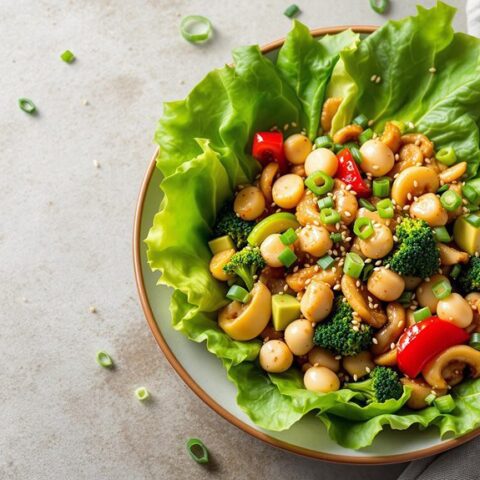

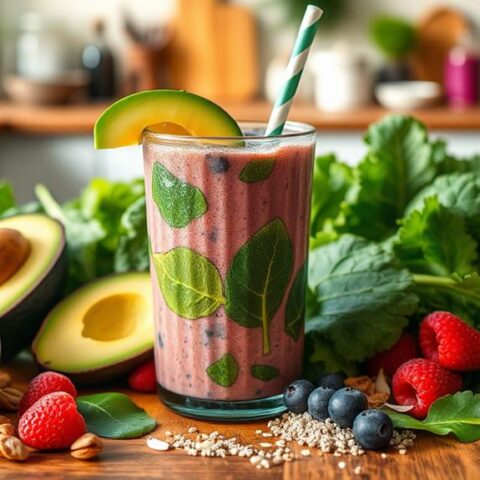
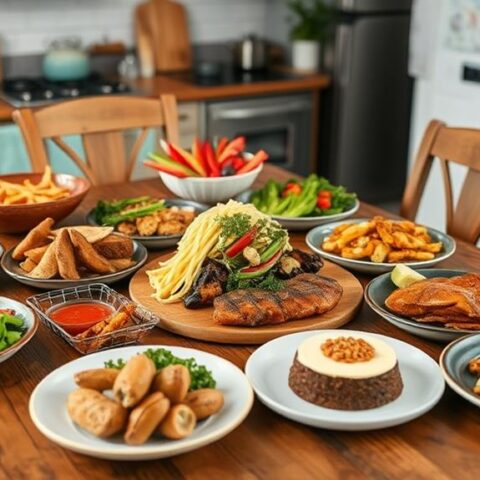
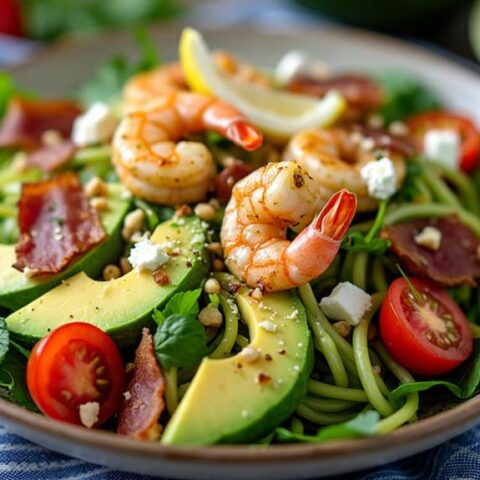
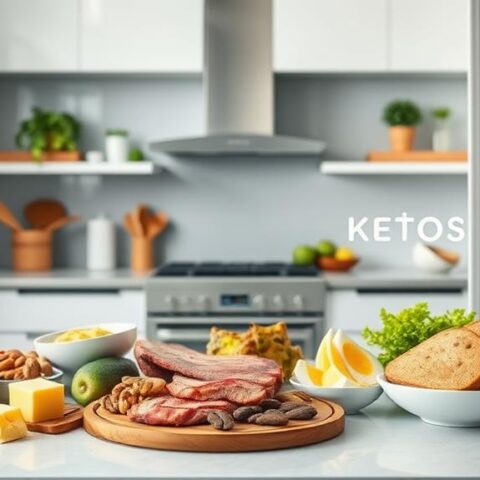




No Comments